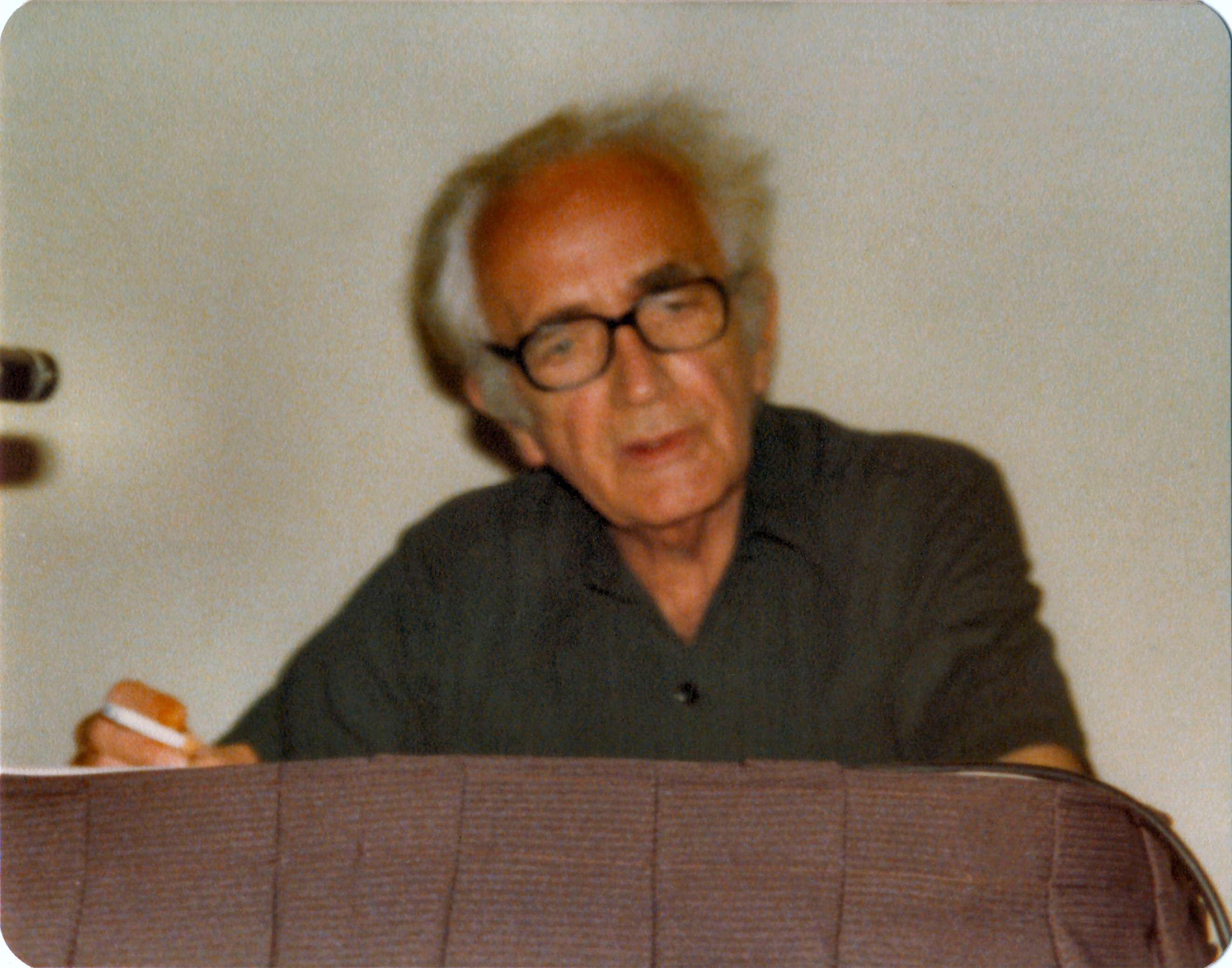„Der verschlingener des Lebens’—‘The Devourer“
The Second Haunts & Horrors MEGAPACK®: 20 Tales by Modern and Classic Authors
Fritz Leiber war ein US-amerikanischer Schauspieler und Autor von Science-Fiction-, Fantasy- und Horror-Geschichten und Romanen.
Leiber benutzte gelegentlich das Pseudonym Francis Lathrop.
Wikipedia

„Der verschlingener des Lebens’—‘The Devourer“
The Second Haunts & Horrors MEGAPACK®: 20 Tales by Modern and Classic Authors
Fritz Leiber in einem Interview mit Paul Walker (1978), in: Fritz Leiber: Herrin der Dunkelheit (orig.: Our Lady Of Darkness, 1976), ins Deutsche übersetzt von Hans Maeter, München 1980, ISBN 3-453-30676-7, S. 186
Fritz Leiber in einem Interview mit Paul Walker (1978), in: Fritz Leiber: Herrin der Dunkelheit (orig.: Our Lady Of Darkness, 1976), ins Deutsche übersetzt von Hans Maeter, München 1980, ISBN 3-453-30676-7, S. 182
Fritz Leiber: Herrin der Dunkelheit (orig.: Our Lady Of Darkness, 1976), ins Deutsche übersetzt von Hans Maeter, München 1980, ISBN 3-453-30676-7, S. 165
"What was the use of life anyhow? He had laboriously recovered from his alcoholism only to face the Noseless One once more in a new triangular mask." - '
Fritz Leiber: Herrin der Dunkelheit (orig.: Our Lady Of Darkness, 1976), ins Deutsche übersetzt von Hans Maeter, München 1980, ISBN 3-453-30676-7, S. 67
"At any particular time in history there have always been one or two cities of the monstrous sort - viz., Babel oder Babylon, Ur-Lhassa, Niniveh, Syracuse, Rome, Samarkand, Tenochtitlan, Peking - but we live in the Megapolitan (or Necropolitan) Age, when such disastrous blights are manifold and threaten to conjoin and enshroud the world with funebral yet multipotent city-stuff." - '
“What is superstition, but misguided, unobjective science?”
Quelle: Conjure Wife (1953), Chapter 2 (p. 26).
Kontext: What is superstition, but misguided, unobjective science? And when it comes down to that, is it to be wondered if people grasp at superstition in this rotten, hate-filled, half-doomed world of today? Lord knows, I'd welcome the blackest of black magic, if it could do anything to stave off the atom bomb.
“They’ve heard about space but they still don’t believe in it.”
Quelle: The Wanderer (1964), Chapter 6 (p. 37).
Kontext: They’ve heard about space but they still don’t believe in it. They haven’t been out here to see for themselves that there isn’t any giant elephant under the earth, holding it up, and a giant tortoise holding up the elephant. If I say “planet” and “spaceship” to them, they still think “horoscope” and “flying saucer”.
“There are vampires and vampires, and the ones that suck blood aren’t the worst.”
Short Fiction, Night's Black Agents (1947)
Quelle: “The Girl with the Hungry Eyes” (p. 240)
“The Dreams of Albert Moreland” (p. 182); originally published in The Acolyte, #10, Spring 1945
Short Fiction, Night's Black Agents (1947)
“It was always worth everything to get away by himself, climb a bit, and study the heavens.”
Quelle: The Wanderer (1964), Chapter 3 (p. 26).
Quelle: Bazaar of the Bizarre (pp. 233-234) note: Fafhrd and the Gray Mouser series (1939-1988), Swords Against Death (1970)
“You’ve got to believe there’s some sort of sense in everything that crazies say.”
“Crazies?”
“All of us.”
Quelle: Our Lady of Darkness (1977), Chapter 30 (p. 181)
“I abominate any organization that denies cats are people!”
Quelle: The Wanderer (1964), Chapter 3.
“There was always something new to be seen in the unchanging night sky.”
Quelle: The Wanderer (1964), Chapter 5 (p. 33).
“A Bit of the Dark World” (pp. 261-262); originally published in Fantastic, February 1962
Short Fiction, Night's Black Agents (1947)
“The greater the variety of intelligent life Don saw, the more he became sensitive to its presence.”
Quelle: The Wanderer (1964), Chapter 33 (p. 259).
“Science has only increased the area of the unknown. And if there is a God, her name is Mystery.”
Quelle: Our Lady of Darkness (1977), Chapter 8 (p. 43)
“The Girl with the Hungry Eyes” (p. 241)
Short Fiction, Night's Black Agents (1947)